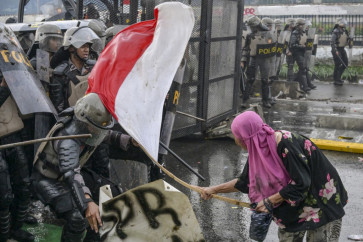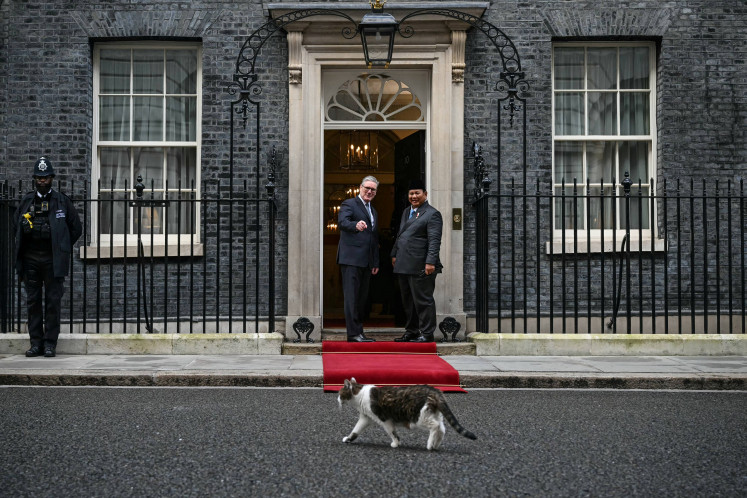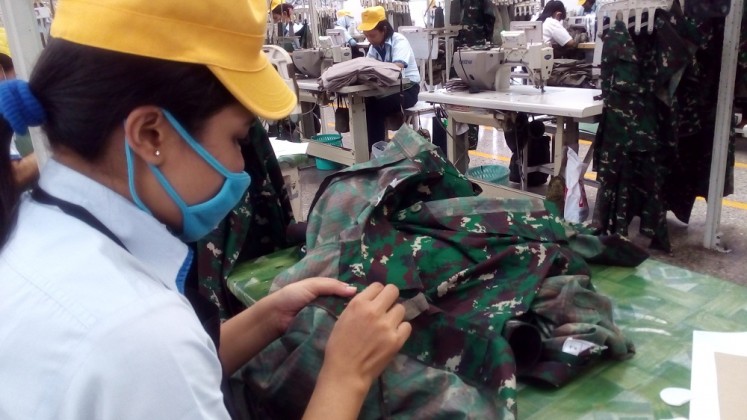Popular Reads
Top Results
Can't find what you're looking for?
View all search resultsPopular Reads
Top Results
Can't find what you're looking for?
View all search resultsIslam from the perspective of Western views (Part 1 of 2)
Most Western people have never set foot in the Arab or Islamic world but have only obtained their impressions of Islam and Muslims through the mass media, or through their contacts with highly diverse groups of Muslim immigrants living in their respective countries
Change text size
Gift Premium Articles
to Anyone
M
ost Western people have never set foot in the Arab or Islamic world but have only obtained their impressions of Islam and Muslims through the mass media, or through their contacts with highly diverse groups of Muslim immigrants living in their respective countries. For instance Moroccans in the Netherlands, Algerians in France, Pakistanis and Indians in the United Kingdom, and Turks in Germany.
Or they obtained their ideas about Islam through extreme events, such as the Sept. 11 terrorist attacks in the United States, or those elsewhere. Often such experiences or impressions have been more negative than positive.
And it is often not Islam as such which is being perceived, but rather the acts of individual Muslims who provide a distorted image of Islam because they pretend to act "in the name of Islam" but do not in any way represent any substantial Muslim majority.
The perception amongst the general population in Europe, or the West in general, is these days often shaped by what happens close at home, just next door, rather than by developments in far away Muslim countries.
In Europe, the view towards Muslims and Islam was in the past heavily influenced by the stereotype thinking which emanated from the conflicts between Christian and Muslim rulers in the Middle Ages. But today's situation in the West has developed further and is different.
Although some of the traditionally preconceived ideas and biases still persist, new elements have come into play. New conflicts have arisen which, although they have little to do with religion or Islam as such, nevertheless strongly reflect upon relations between the West and the Islamic world and Muslims in general.
Of course, the colonial rule of Western countries over the Middle East and elsewhere has left its traces amongst formerly colonized peoples. As far as the post-colonial period is concerned, the Arab-Israeli conflict has been an important factor affecting relations.
At its beginning it was a kind of nationalist conflict about the disputed territory of Palestine. In the course of time, however, it obtained an additional dimension, notably that of a conflict between Jews and Muslims instead of between only Arabs and Israeli Jews.
The Israeli occupation and annexation of Jerusalem have added a religious dimension to the conflict as well. Continuous strong Western support for Israel, and the Western application of - what is often seen by Arabs and Muslims as - double standards in its policies towards the Middle East, also have resulted in hostility within the Arab and Islamic world towards the West.
This, originally nationalist hostility, later on gained the additional dimension of wider Muslim hostility towards the West, resulting in various terrorist operations and other violent outbursts by organizations like al-Qaeda, Taliban and others. Western interventions in Islamic countries like Iraq and Afghanistan, as well as Western presence in the Muslim heartland of the Arabian Peninsula have come to play a role in these animosities and conflicts as well.
Another new element today is the strong presence of many Muslim immigrants in Europe with their very different cultural backgrounds. Their presence has had a strong influence on the opinion amongst some European people towards Islam and Muslims in general.
Many of these immigrants are from the poorer if not poorest rural sectors of their countries and therefore have generally a much lower educational level than that of the country they have immigrated into. Often they are also not in an economically competitive position. (Although it should be noted that there are many successful entrepreneurs amongst their offspring).
In the Netherlands the rate of unemployment is much higher among the Moroccans, than among any other immigrant group, just as is their rate of criminality.
For that reason they have triggered a negative attitude within certain sectors of the Dutch population towards them, and indirectly also towards Islam.
Over the past years, Islam itself has increasingly become a subject of debate in Europe: the attacks by Muslim terrorists on targets in the United States, London and Spain, the pressure on young girls to wear the headscarf, the recruitment of young men for the international jihad, the discovery in particular mosques of books denouncing homosexuals, and the equality of men and women, the implicit condoning of domestic violence and honor-related crimes with reference to the religion of Islam.
Dr. Nikolaos van Dam is Ambassador of the Netherlands in Jakarta and former ambassador to Germany, Turkey, Egypt and Iraq. He served most of his academic and diplomatic career in the Arab world, also covering Libya, Lebanon, Jordan and the Palestinian occupied territories. This article is part of a lecture he delivered at Bimasena (The Mine & Energy Society) in Jakarta, on Oct. 8, 2009.










